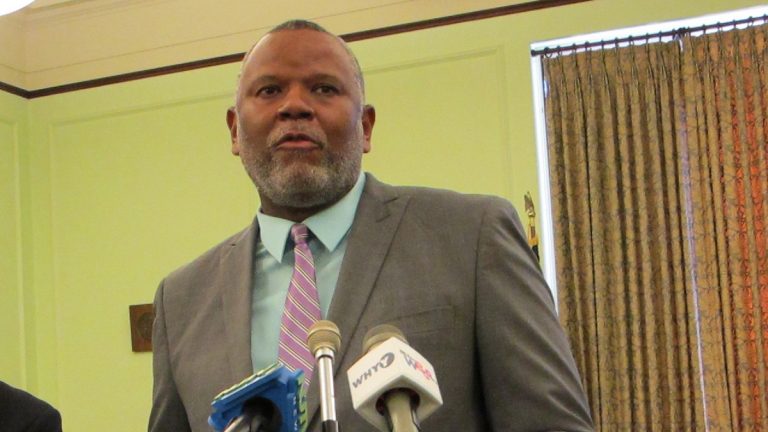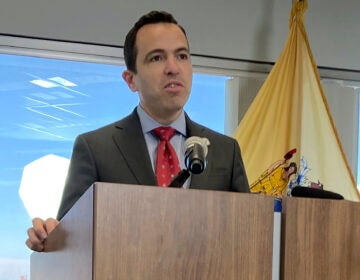N.J. lawmaker aims to prevent, rectify wrongful convictions
State Sen. Joe Pennacchio, a Republican from Morris County, said 27 people in New Jersey have been exonerated since 1989 after an average of 10 years behind bars.

Former Newark teacher A.J. Nash says the legislation proposed by Sen. Joe Pennacchio could help people like him who were wrongly convicted. (Phil Gregory/WHYY)
A New Jersey lawmaker has urged his colleagues to act on his plan for a commission to work on reducing wrongful convictions.
State Sen. Joe Pennacchio, a Republican from Morris County, said 27 people in New Jersey have been exonerated since 1989 after an average of 10 years behind bars.
His proposed Innocence Study and Review Commission would examine causes of wrongful conviction and work on protocols for case reviews sought by prisoners.
“So I would consider this commission a success if we were able hopefully to totally eliminate it, but if you reduce that 10 years down to a less significant number, if we hasten the process, I would consider it a success,” said Pennacchio.
The legislation could address racial disparities in rates of conviction, said New Jersey NAACP president Richard Smith.
“African-Americans make up a disproportionate amount of the people found to have been convicted of crimes that they did not commit, both in this state and across the nation,” he said. “The majority, 63 percent exonerated through DNA evidence, are African-American.”
Former Newark school teacher A.J. Nash told lawmakers at a hearing Thursday he was exonerated after spending 10 years in prison on a sexual assault conviction.
The legislation is needed, he said.
“In the 10 years that I experienced this wrongful conviction, you had no one there listening to you. Every letter you sent out, every cry for help, went unanswered,” he said. “Most of the litigation, I did myself. I fought for myself.”
Nash sad he is convinced he would have been freed sooner if there were a commission to review flawed convictions.
“Had this been created, had this been in place, I wouldn’t spend 10 years in prison,” he said. “It would have been done expeditiously because there were a lot of flaws in my case, but it had no one to review it.”
Four years after being exonerated, Nash says he’s still traumatized by being locked up so long for something he didn’t do.
WHYY is your source for fact-based, in-depth journalism and information. As a nonprofit organization, we rely on financial support from readers like you. Please give today.




